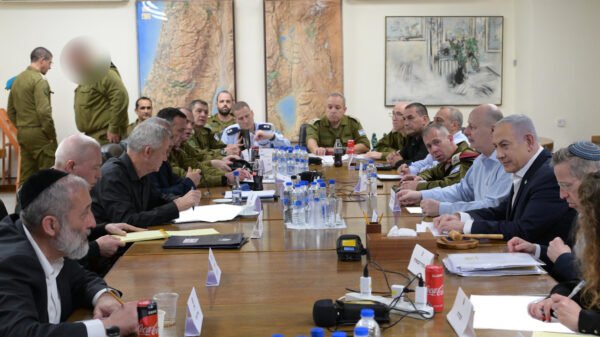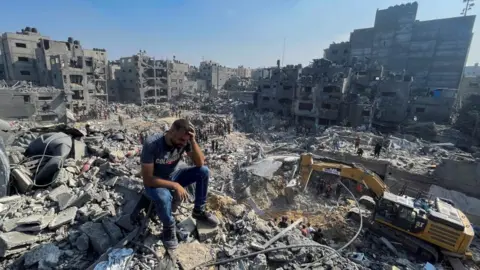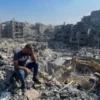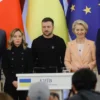Putin’s Influence on Ukraine: Predicting Heightened Conflict
When Ukrainians discuss Russia’s presidential “election,” they often emphasize the word with quotation marks. This highlights their skepticism toward the legitimacy of the process. In Ukraine, there was no anticipation for a genuine outcome since the vote was meticulously orchestrated.
The primary curiosity lay in the extent of support Vladimir Putin would assert, and 87% was undeniably substantial, even for him. However, the mood in Ukraine was far from jovial. Regardless of the figures on paper, the implications were unmistakable: an escalation in deadly attacks, increased drone activity, and intensified shelling. The full-scale invasion initiated by Vladimir Putin two years ago persists unabated.
In response to the official outcome, Ukraine’s President, Volodymyr Zelensky, didn’t mince words, denouncing Putin as “sick with power” and someone who would stop at nothing. Zelensky urged Ukraine’s allies to ensure Putin faces accountability, advocating for his trial at The Hague, referencing the International Criminal Court.
Putin is already wanted by The Hague for war crimes, particularly for orchestrating the forced deportation of children from occupied areas of Ukraine. Russian elections have long been tightly controlled, with no genuine opposition candidates featured this time. The Kremlin’s narrative of Putin embodying Russia and representing the only choice has been meticulously crafted over the years.
Yet, for Ukraine, Putin symbolizes destruction and loss, epitomized by places like Mariupol, Bucha, and Bakhmut. The scars of war inflicted by Putin’s decisions are evident in every cemetery, in the displacement of millions, and in the harrowing experiences of those seeking refuge in bomb shelters.
Individual stories illustrate the profound impact of Putin’s actions, from the young girl in Chernihiv injured in a missile attack to the soldier returning to the front, the sole survivor from his original unit. While Putin bears significant responsibility, he isn’t alone in this. Many Ukrainians harbor deep resentment toward Russians, feeling they failed to prevent a conflict years in the making.
Conversely, there are Russians who share similar sentiments, even facing repression for dissenting against Putin’s regime. Some Russians in exile actively support Ukraine, driven by conscience and a sense of guilt. Despite the ongoing conflict, Ukraine finds itself compelled to resist, left with no alternative in the face of Putin’s relentless aggression.




































Comment Template